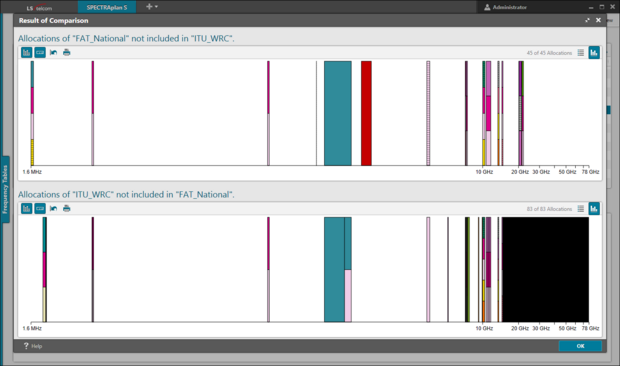The ITU World Radiocommunication Conference 2023 took place in Dubai, United Arab Emirates from 20 November to 15 December 2023. It successfully convened national government authorities, telecommunication regulatory bodies, and key representatives from the radiocommunications sector. The WRC-23 facilitated pivotal policy and technical regulatory discussions at the global level, marking a significant collaboration between various stakeholders in the field.
Your LS telcom Contact
Contact us for further information
Phone: +49 (0) 7227 9535 600
E-mail: Info(at)LStelcom.com
Key issues from the agenda of the WRC-23:
- Identification of additional frequency bands for the continued development of International Mobile Telecommunications (IMT), including the use of high-altitude platform stations as IMT base stations (HIBS) for the universal deployment of wireless networks.
- The future of the ultra-high frequency (UHF) broadcasting band which has implications for terrestrial television broadcast and programme-making and special events (PMSE).
- Improvements to the international regulatory framework for geostationary orbit (GSO) and non-geostationary (NGSO) satellites while promoting equitable access for all countries.
- Regulatory framework for the use of earth stations in motion (ESIMs) on board aircraft and ships for communication with geostationary orbit (GSO) and non-geostationary (NGSO) satellites.
- Use of satellite technologies for broadband services to improve connectivity, particularly in remote areas.
- New spectrum to enhance radiocommunications in the aeronautical mobile service, including by satellite, and to facilitate the use of the Space Research and Earth exploration-satellite services for climate monitoring, weather prediction and other scientific missions.
However, in order that the benefits of these changes can be felt, national regulators and administrations will need to update their FATs to incorporate the new allocations and identifications and this can be a complex and time-consuming process.
A country's national frequency allocation table (FAT) is a critical reference document which is an essential part of ensuring that the radio spectrum is managed effectively. It sets out how the spectrum is divided up between the various services, and provides regulatory certainty to those using the spectrum, and those seeking to use it, on which frequencies can be used for which applications. Whilst at their heart, each FAT is based on the ITU Radio Regulations, most countries have national variations which need to be taken account of, and as a result each nation's FAT is, to some extent, unique.
Updating the FAT almost always requires consultation with national stakeholders as the changes will impact spectrum currently in use to deliver existing services. LS telcom can provide compatibility studies to ensure that new radio services will not cause harmful interference to already existing services operating in the same or an adjacent band (e.g. IMT in the new bands vs. other Services).
This may lead to a re-farming programme to clear these incumbent users from a band in order to make it available for a new service, such that some frequencies may not be available until a specified date. Restrictions such as this need to be included within the revised FAT, to ensure that it is truly the go-to source of national spectrum information.
